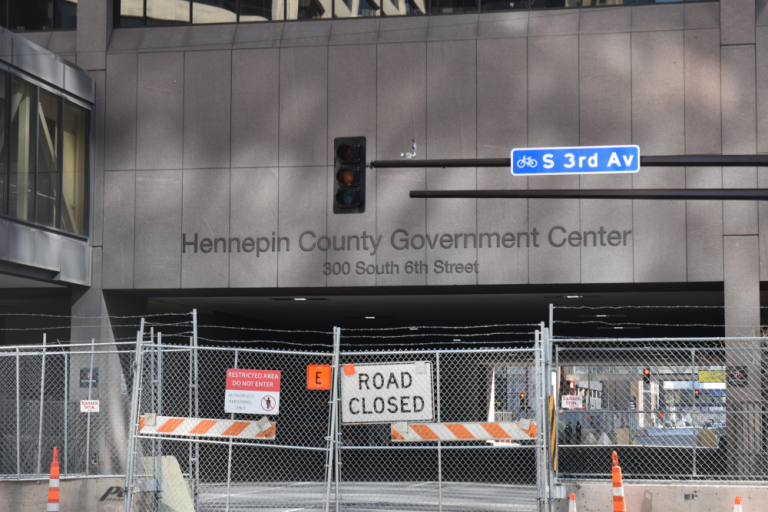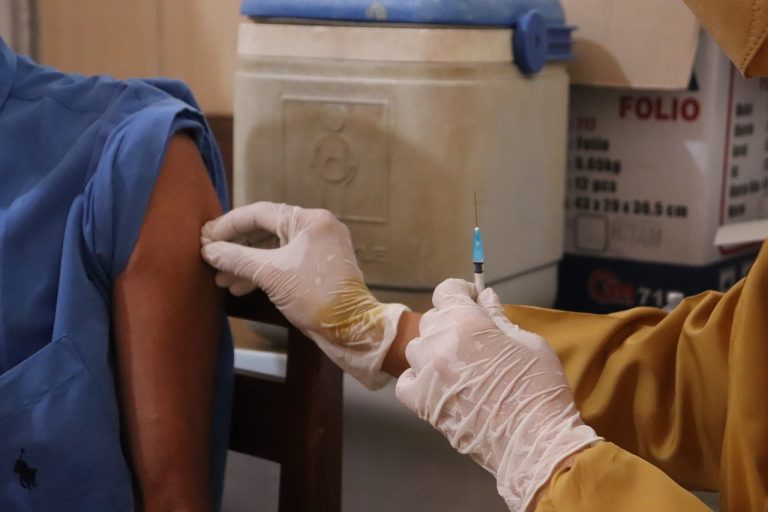Minnesota state and local law enforcement officials began preparing efforts to mitigate the impact of potential civil unrest during the upcoming and highly-charged Derek Chauvin trial last July under a plan dubbed Operation Safety Net.
The plan involves collaboration between city, county, state and federal branches of law enforcement, and also involves the FBI, Minnesota National Guard, and Department of Homeland Security.
The National Guard was activated in a February 5 Executive Order by Minnesota Governor Tim Walz upon the request of Minneapolis and St. Paul mayors.
Extensive preparations for Derek Chauvin Trial outrage
In a Feb. 17 press conference, Colonel Matt Langer, Chief of the Minnesota State Patrol, gave a summary of the overall mission: “First to preserve and protect lawful first amendment nonviolent protests and demonstrations. We want that to occur.”
Success
You are now signed up for our newsletter
Success
Check your email to complete sign up
“And the second is to prevent large scale violent civil disturbances, assaultive actions, property damage, fires and looting to government buildings, businesses and critical infrastructure, which is what we’re here to prevent.”
Langer described the plan as a 4-phase process. Phase one involved planning and preparation prior to jury selection. Phase two begins with jury selection for the trial. Phase three will be in effect during closing arguments and jury deliberation, and phase four involves demobilization and reductions in staffing. The bulk of law enforcement’s resources will be deployed during phase three.
I can tell you from the experience of last year, that in the midst of the riots and the midst of the fires and all that, the people’s voices who really wanted to call out the death of George Floyd could not be heard over the vitriol and over the activity of folks that were there to destroy property and to hurt other people
Commissioner of Public Safety, John Harrington
Hennepin County Sheriff David Hutchinson explained the role his department will play is to ensure the integrity of the Derek Chauvin trial. Hutchinson said the emphasis will be on the need for the trial to move forward without interruption, “We are not going to allow disruption. I think that needs to be pointed out, the court needs to go on. We all want to see justice served. In order for that to happen, everybody needs to respect the process [and] let our deputies do their jobs, which is keep the people safe so the courts can do their job.”

Hutchinson also said his department would enact a zero tolerance policy towards violence and destruction during the Derek Chauvin trial, “We want to protect everybody’s rights, but if you cause harm, you break things, burn things, hurt people, hurt people’s livelihood, I’m here to say, you will go to jail. We will arrest everybody who breaks the law. We’re not going to tolerate disorder.”
Commissioner of Public Safety, John Harrington said that lessons have been drawn from recent history both in the Twin Cities and also areas like Los Angeles and Ferguson where groups such as Black Lives Matter often rioted, “…where court trials have come, gone, and where civil disturbances, protests and riots have been the result. We’re committed at the unified command to learn from history and not repeat it”.
Harrington added the efforts to prevent riots, destruction of property, and personal injury should not interfere with First Amendment rights, “It’s a balancing act as we do both of those things. It’s not a one or the other, it’s a ‘both and.’ We have to make sure that people’s voices can be heard.”
“I can tell you from the experience of last year, that in the midst of the riots and the midst of the fires and all that, the people’s voices who really wanted to call out the death of George Floyd could not be heard over the vitriol and over the activity of folks that were there to destroy property and to hurt other people.”
Some community activists are, however, concerned about the large presence of law enforcement ahead of and during the Derek Chauvin trial. A CBS Minnesota report quoted Michelle Gross of Communities United Against Police Brutality as saying, “The problem here is not the community. The problem is law enforcement’s response to that community, including the use of soldiers — literally soldiers — on our streets.”
General Shawn Manke of the Minnesota National Guard addressed the issue by saying that while he understands that the sight of soldiers in our communities is not something that people want to see, the Minnesota National Guard are composed of members of the Minneapolis community, “There are over 500 Minnesota National Guardsmen who live within the communities directly affected by the destruction due to the civil unrest from last May and June. When we stand watch over your communities, we are standing watch over our communities, our families, our friends and our coworkers. We are members of your communities. Our primary goal is to keep these communities safe.”
As part of the preparation, a security perimeter consisting of physical barriers is being put up around the Hennepin County Government Center and City Hall ahead of the Derek Chauvin trial. Many buildings around Minneapolis are also undergoing fortification.

Minneapolis City Council member Jeremiah Ellison was critical of the barriers as well as the heightened law enforcement presence ahead of the Derek Chauvin trial in a Feb. 16 tweet, “This is not how you demonstrate care for a city traumatized by police violence. Council did not approve this plan and I certainly don’t personally approve of it. Affirm peoples’ pain, prove we’re working to undo harm, de-escalate; this is how you prevent mass unrest. Not walls.”
CBS Minnesota reported that “City and county officials say despite the fences there will be plenty of space around the Government Center for protestors. The site of the George Floyd Memorial at 38th and Chicago will also remain open.”
During a March 1 press conference, Harrington said that according to the Department of Homeland Security and the FBI, there were currently no credible threats to the trial. Minneapolis Police Chief Medaria Arradondo also expressed confidence in the “safety, planning and preparation” that has been going on for the past 8 months.
Jury selection in the trial of former Minneapolis police officer Derek Chauvin, who is charged with 2nd degree murder and 2nd degree manslaughter in the May 2020 death of George Floyd begins on March 8 in Minneapolis.













